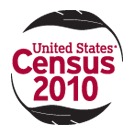 |
| Peace and Dignity Runners on Route to Guatemala. Photo courtesy of Yari Sina Sierra. |
Uaxactun, Guatemala
(UCTP Taino News) - The Peace and Dignity Journeys, a continental spiritual run
held every four years by Indigenous Peoples from throughout the Western Hemisphere
will end today Uaxactun, in Guatemala. The run began May 1st, with two
groups of runners beginning simultaneously in Chickaloon, Alaska and Tierra del
Fuego, Argentina. The runners traveled
through various indigenous communities carrying sacred staffs representing the
prayers of the communities they have passed through since the first run and
beyond. Each Peace and Dignity Journeys is dedicated to a specific prayer with
2012 dedicated to water.
Among the
Indigenous Peoples participating in the 2012 Peace and Dignity Journeys, Caribbean
Indigenous Peoples have been represented and will be present during the closing
ceremonies. Following two local Caribbean runs, one in Kiskeia (Dominican
Republic) and one in Boriken (Puerto Rico), two youth Taino youth
representatives, Yari Sina Sierra and Wakanari Arawak, have continued on with
the main contingent entering Guatemala today. Also participating in the closing
ceremonies are Kasike Roman Guaraguarix Perez and Sherri Vigor of Yucayeque
Maisiti and Bibi Vanessa Inarunikia Pastrano, found of the Bohio de Atabei
Caribbean Indigenous Women’s Circle, and Council member of the United
Confederation of Taino People. Pastrano was worked together with the Peace and
Dignity Journeys since 2010 as a regional coordinator and contact for the Caribbean.
The Peace
and Dignity Journeys will culminate in various ceremonies over the next few
days, officially ending on Dec. 4.
UCTPTN11.28.2012











